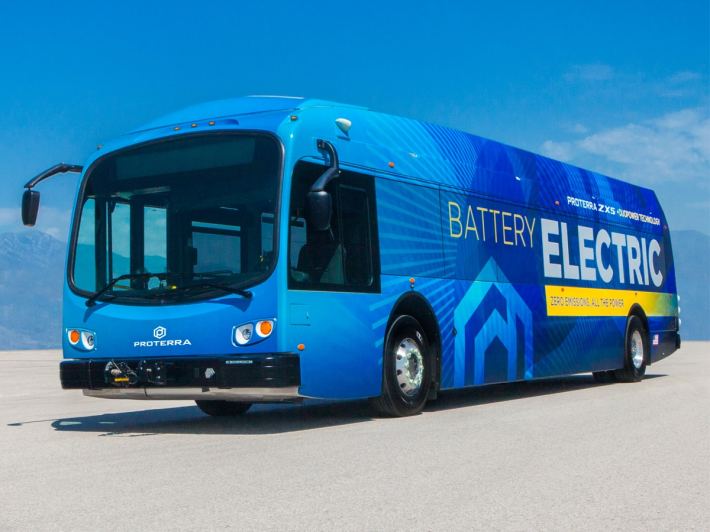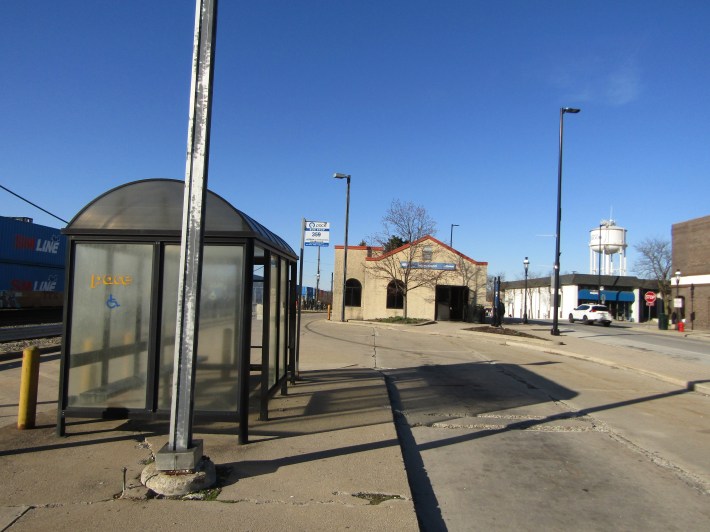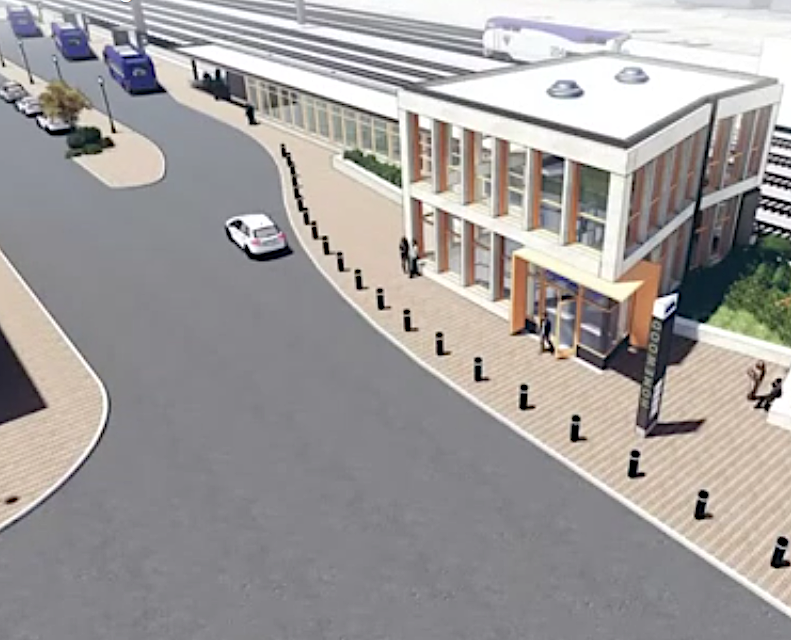The Pace board of directors approved two major initiatives during its March 16 meeting. The board agreed to piggyback on the state of Georgia’s electric bus purchasing contract with Proterra Inc., the Burlingame, California-based electric bus manufacturer, allowing Pace to deliver buses to the North Division, its routes serve Waukegan and the adjacent suburbs, faster than originally planned.
Pace also approved an intergovernmental agreement with Metra to fund improvements to the Pace portion of the south suburban Homewood Metra/Amtrak/Pace multimodal station. Metra's board approved the contract during the meeting that took place at the same time.
While the Homewood station agreement was approved without any issues, the electric bus piggybacking vote got some pushback in the public comments. Marcos Feldman, senior researcher for the transit labor equity think tank Jobs to Move America, argued that, in the interest of ensuring job opportunities and economic benefits for marginalized communities, Pace should bid the project out. But Pace officials responded that, with current supply chain issues and the rising demand for electric buses, it was in the transit agency's best interest to take the opportunity to get in front of the line. Assuming there are no unexpected delays, Pace may be able to get 20 electric buses in circulation as soon as next winter.
Electric buses
The final version of Pace’s Driving Innovation strategic plan calls for the agency to make its bus fleet emission-free by 2040. The 2022 budget allocated $10 million to buy six electric buses and install charging stations at the North Division garage, which would be a significant improvement over the two diesel-electric buses used in Highland Park. During the Pace board’s September 2021 meeting, then-executive director Rocky Donahue said that the goal was to convert all North Division routes to electric buses by 2026. The five-year capital plan called for Pace to buy 52 additional electric buses over that period.
Current Pace executive director Melissa Metzger said that the contract is worth $26.5 million, with Pace paying $1,245,530 per bus, and the rest of the money covering the charging infrastructure. She said the per-bus price includes a two-year complete bus warranty and five-year propulsion warranty.
According to Proterra’s press release, the 40-foot ZX5 Max buses will feature “more than 13 megawatt hours of battery storage energy.” Metzger said that Pace will be able to tell when a bus is running out of power in time to get it recharged.

She added that the buses will be delivered in the first or second quarter of 2023. "We're going to see the buses in 2023, hopefully, if there's no more shortage of parts."
Pace board chair Richard Kwasneski said this pilot will give the transit agency a chance to test how the electric vehicles perform in Chicagoland's climate. He also credited Metzger for putting the deal together on a relatively short notice.
In a statement, Proterra's chief commercial officer John Walsh said that his company was “delighted to be Pace’s partner to bring our industry-leading fleet electrification solutions to the Chicagoland area. With our purpose-built vehicle platform and best in class range, we are excited to help drive the region’s switch to zero-emission, electric transportation."
Marcos Feldman said that Jobs to Move America is trying to ensure “taxpayer dollars [are] spent in such a way to provide maximum benefit for all residents,” especially from communities of color that often don’t get benefits from development and major infrastructure projects. While he said his organization appreciates Pace going all-electric, it believes that “by not using a competitive process to procure its first electric buses, Pace is missing out on a key opportunity to promote job equity and racial equity in the emerging electric vehicle industry through your public purchases.”
Feldman urged Pace to not only bid the project out, but to require bidders to comply with JTMA's U.S. Employment Plan, a "customizable, federally-approved policy tool that builds good jobs and equity into the public purchasing process." Within this framework, "bidders will be evaluated on the basis of their plans regarding the quality and location of the jobs, training and hiring of marginalized or disadvantaged workers, workers who faced barriers for those [well-paying] manufacturing jobs,” Feldman said. He noted that CTA agreed to use the policy for two major procurements, and he encouraged Pace to follow suit.
Kwasneski defended the piggybacking, saying that, after speaking to several electric bus manufacturers during the November 2021 American Public Transportation Association conference, he found that, between supply chain issues and the spike in demand, it make take years for Pace to get any electric buses unless they “get in the queue and get some electric buses this year.”
Homewood Station Contract
The Metra Electric District line’s Homewood station doubles as an Amtrak station for state-funded Illini and Saluki trains to downstate Carbondale, Illinois, plus the long-distance City of New Orleans train to the Big Easy. Since MED trains are designed for high-level boarding, while Amtrak’s Superliner cars require ground-level platforms, each railroad has its own platform. An underpass connects the two platforms to the historic station house and commuter parking lots west of the tracks, and the Pace transfer station east of the tracks.

The Pace facility currently has two boarding platforms, one closest to the tracks and one in the middle. A smaller head house leads to the tunnel while providing more substantial protection from the elements than the bus shelters. While the facility has the capacity to serve at least three routes, it currently serves two, Routes 356 and 359.
Metra and Amtrak are currently working together to renovate the station, adding wheelchair ramps on both sides of the platform, augmenting the existing elevators, making the west side station house ADA-compliant and building the new parking facility to make for the parking spaces lost to the west ramp. The Pace portion will get the most extensive renovations, with a new covered ramp and new station house with restrooms for bus drivers. All the bus stops will be moved to the expanded west platform, but it will have three bays, preserving the overall capacity and ensuring that riders won’t have to cross a busway to make transfers. The bus shelters will be replaced as well.
According to the presentation shared during the meeting, the station renovation costs $16.8 million. Under the agreement, Pace will reimburse Metra $2.81 million for the bus facility renovations.
Kwasneski said that he was glad to see “another good project” that would improve both Metra and Pace facilities and improve accessibility move forward.





